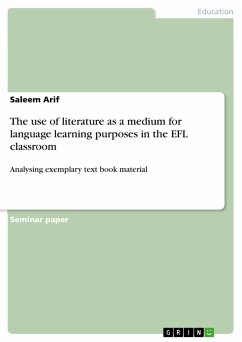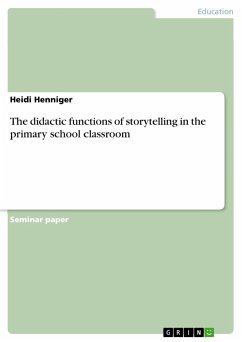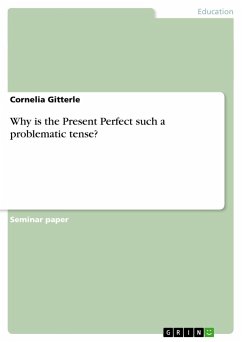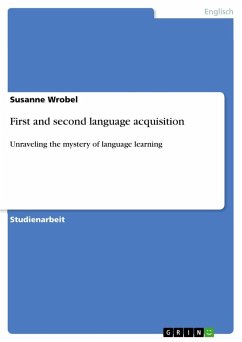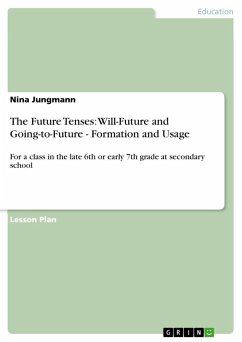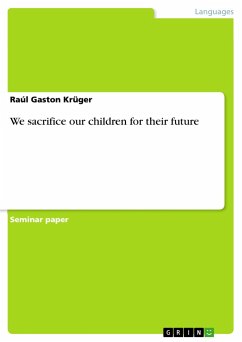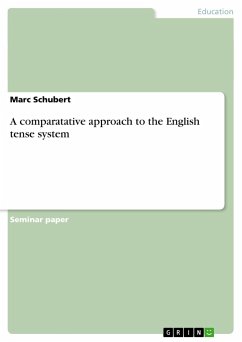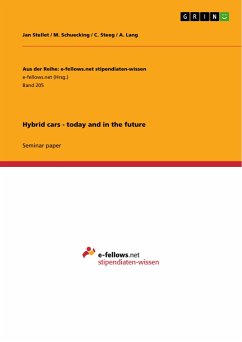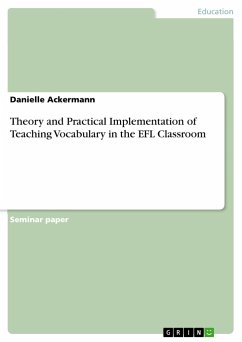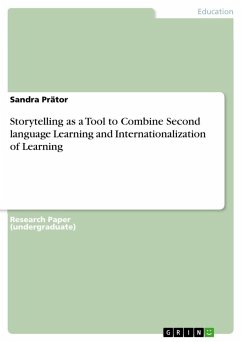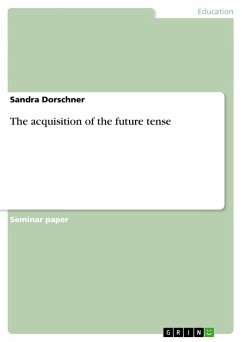
The acquisition of the future tense

PAYBACK Punkte
0 °P sammeln!
Seminar paper from the year 2006 in the subject Didactics - English - Pedagogy, Literature Studies, grade: 2,0, http://www.uni-jena.de/ (Institut für Anglistik/Amerikanistik), course: Syntactic Development, language: English, abstract: It is the goal of this paper to examine the acquisition of the future tense inchildren's speech. After a two word utterance stage they develop more andmore their speaking skills and start to talk about events and activities in thefuture, apart from saying things about the present. To give a detailed accountof the acquisition of the future, this study includes s...
Seminar paper from the year 2006 in the subject Didactics - English - Pedagogy, Literature Studies, grade: 2,0, http://www.uni-jena.de/ (Institut für Anglistik/Amerikanistik), course: Syntactic Development, language: English, abstract: It is the goal of this paper to examine the acquisition of the future tense inchildren's speech. After a two word utterance stage they develop more andmore their speaking skills and start to talk about events and activities in thefuture, apart from saying things about the present. To give a detailed accountof the acquisition of the future, this study includes several steps ofexamination. It will not only try to answer to the questions, when children firstuse future expressions and how their use develops in time. But it also includesan analysis of the occurrence of future tense in specific constructions, such assimple sentences, questions etc. It is also necessary to look at verbs as well assubjects which occur with expressions of future tense. A last part of the studyis concerned with common errors children produce when speaking about thefuture.There exist several ways to express the future in adult grammar. The mostcommon forms, which are also the focus of this analysis, are the simple futureexpressed by will and the going to-future. Other possibilities of expressing thefuture, e.g. using simple present tense or a present progressive form of theverb, will be neglected in this paper, as they are too complex in their conceptsfor children. They mainly depend on adverbials of time to denote the futureand therefore would require a different focus of analysis.The simple future is formed with the modal auxiliary will, followed by theinfinitive of a verb (e.g. Greenbaum 1991: 54), as in(a) I will write the exam.The will-future is used to convey two different concepts: first, it is used forexpressing general predictions and assumptions of what is going to happen inthe future and second, it marks spontaneous decisions, offers and promises.(cf. Fleischhack 2001: 70).The second form of expressing future tense is the combination of theinfinitive of a verb with a form of be going to, such as in(b) I am going to work in the garden.




